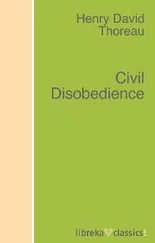yourself with it, and do not merely abandon it to them. We make curious
mistakes sometimes. Often the poor man is not so cold and hungry as he
is dirty and ragged and gross. It is partly his taste, and not merely
his misfortune. If you give him money, he will perhaps buy more rags
with it. I was wont to pity the clumsy Irish laborers who cut ice on
the pond, in such mean and ragged clothes, while I shivered in my more
tidy and somewhat more fashionable garments, till, one bitter cold day,
one who had slipped into the water came to my house to warm him, and I
saw him strip off three pairs of pants and two pairs of stockings ere
he got down to the skin, though they were dirty and ragged enough, it
is true, and that he could afford to refuse the _extra_ garments which
I offered him, he had so many _intra_ ones. This ducking was the very
thing he needed. Then I began to pity myself, and I saw that it would
be a greater charity to bestow on me a flannel shirt than a whole
slop-shop on him. There are a thousand hacking at the branches of evil
to one who is striking at the root, and it may be that he who bestows
the largest amount of time and money on the needy is doing the most by
his mode of life to produce that misery which he strives in vain to
relieve. It is the pious slave-breeder devoting the proceeds of every
tenth slave to buy a Sunday’s liberty for the rest. Some show their
kindness to the poor by employing them in their kitchens. Would they
not be kinder if they employed themselves there? You boast of spending
a tenth part of your income in charity; maybe you should spend the nine
tenths so, and done with it. Society recovers only a tenth part of the
property then. Is this owing to the generosity of him in whose
possession it is found, or to the remissness of the officers of
justice?
Philanthropy is almost the only virtue which is sufficiently
appreciated by mankind. Nay, it is greatly overrated; and it is our
selfishness which overrates it. A robust poor man, one sunny day here
in Concord, praised a fellow-townsman to me, because, as he said, he
was kind to the poor; meaning himself. The kind uncles and aunts of the
race are more esteemed than its true spiritual fathers and mothers. I
once heard a reverend lecturer on England, a man of learning and
intelligence, after enumerating her scientific, literary, and political
worthies, Shakespeare, Bacon, Cromwell, Milton, Newton, and others,
speak next of her Christian heroes, whom, as if his profession required
it of him, he elevated to a place far above all the rest, as the
greatest of the great. They were Penn, Howard, and Mrs. Fry. Every one
must feel the falsehood and cant of this. The last were not England’s
best men and women; only, perhaps, her best philanthropists.
I would not subtract any thing from the praise that is due to
philanthropy, but merely demand justice for all who by their lives and
works are a blessing to mankind. I do not value chiefly a man’s
uprightness and benevolence, which are, as it were, his stem and
leaves. Those plants of whose greenness withered we make herb tea for
the sick, serve but a humble use, and are most employed by quacks. I
want the flower and fruit of a man; that some fragrance be wafted over
from him to me, and some ripeness flavor our intercourse. His goodness
must not be a partial and transitory act, but a constant superfluity,
which costs him nothing and of which he is unconscious. This is a
charity that hides a multitude of sins. The philanthropist too often
surrounds mankind with the remembrance of his own cast-off griefs as an
atmosphere, and calls it sympathy. We should impart our courage, and
not our despair, our health and ease, and not our disease, and take
care that this does not spread by contagion. From what southern plains
comes up the voice of wailing? Under what latitudes reside the heathen
to whom we would send light? Who is that intemperate and brutal man
whom we would redeem? If any thing ail a man, so that he does not
perform his functions, if he have a pain in his bowels even,—for that
is the seat of sympathy,—he forthwith sets about reforming—the world.
Being a microcosm himself, he discovers, and it is a true discovery,
and he is the man to make it,—that the world has been eating green
apples; to his eyes, in fact, the globe itself is a great green apple,
which there is danger awful to think of that the children of men will
nibble before it is ripe; and straightway his drastic philanthropy
seeks out the Esquimaux and the Patagonian, and embraces the populous
Indian and Chinese villages; and thus, by a few years of philanthropic
activity, the powers in the mean while using him for their own ends, no
doubt, he cures himself of his dyspepsia, the globe acquires a faint
blush on one or both of its cheeks, as if it were beginning to be ripe,
and life loses its crudity and is once more sweet and wholesome to
live. I never dreamed of any enormity greater than I have committed. I
never knew, and never shall know, a worse man than myself.
I believe that what so saddens the reformer is not his sympathy with
his fellows in distress, but, though he be the holiest son of God, is
his private ail. Let this be righted, let the spring come to him, the
morning rise over his couch, and he will forsake his generous
companions without apology. My excuse for not lecturing against the use
of tobacco is, that I never chewed it; that is a penalty which reformed
tobacco-chewers have to pay; though there are things enough I have
chewed, which I could lecture against. If you should ever be betrayed
into any of these philanthropies, do not let your left hand know what
your right hand does, for it is not worth knowing. Rescue the drowning
and tie your shoe-strings. Take your time, and set about some free
labor.
Our manners have been corrupted by communication with the saints. Our
hymn-books resound with a melodious cursing of God and enduring him
forever. One would say that even the prophets and redeemers had rather
consoled the fears than confirmed the hopes of man. There is nowhere
recorded a simple and irrepressible satisfaction with the gift of life,
any memorable praise of God. All health and success does me good,
however far off and withdrawn it may appear; all disease and failure
helps to make me sad and does me evil, however much sympathy it may
have with me or I with it. If, then, we would indeed restore mankind by
truly Indian, botanic, magnetic, or natural means, let us first be as
simple and well as Nature ourselves, dispel the clouds which hang over
our own brows, and take up a little life into our pores. Do not stay to
be an overseer of the poor, but endeavor to become one of the worthies
of the world.
I read in the Gulistan, or Flower Garden, of Sheik Sadi of Shiraz, that
“They asked a wise man, saying; Of the many celebrated trees which the
Most High God has created lofty and umbrageous, they call none azad, or
free, excepting the cypress, which bears no fruit; what mystery is
there in this? He replied; Each has its appropriate produce, and
appointed season, during the continuance of which it is fresh and
blooming, and during their absence dry and withered; to neither of
which states is the cypress exposed, being always flourishing; and of
this nature are the azads, or religious independents.—Fix not thy heart
Читать дальше












